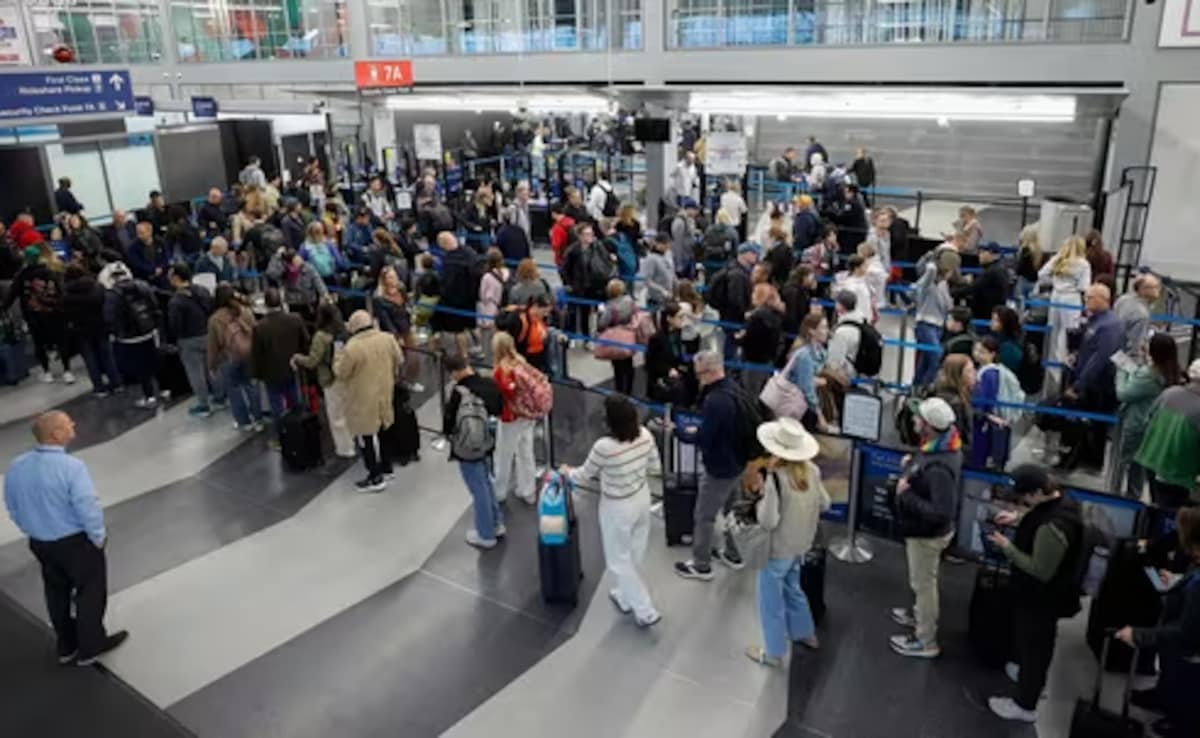Authorities cleared the camp, but still critics on the right are furious over the administrationâs decision to permit thousands of Haitians, some of whom made a harrowing transhemispheric trek from countries as far south as Chile, the opportunity for a hearing with an immigration judge to plead their case for asylum. They see the new arrivals â from an increasingly diverse array of countries â as a symptom of Bidenâs supposedly soft approach to migration.
A chastened White House, meanwhile, has struggled to mollify critics on the left. A move to suspend horse patrols on the border earned derision on social media, while the Biden administrationâs decision to deport thousands of Haitians â some of whom had lived outside their native country for years â to disaster-struck, crime-riddled, failing-state Haiti saw Bidenâs special envoy to the Caribbean nation resign in protest.
âI will not be associated with the United Statesâ inhumane, counterproductive decision to deport thousands of Haitian refugees and illegal immigrants to Haiti, a country where American officials are confined to secure compounds because of the dangers posed by armed gangs in control of daily life,â Daniel Foote, the envoy, wrote in a letter last week to Secretary of State Antony Blinken.
Biden promised a more humane departure from the ultranationalism of his predecessor. His administration recently announced that it would raise the cap on refugee admissions to 125,000 people for the fiscal year that begins Oct. 1, after resettlement was brought down to a trickle by the Trump administration. The United States now presides over a sprawling resettlement operation, spanning multiple continents, that involves tens of thousands of Afghans evacuated from the clutches of the Taliban. But these efforts butt up against a political calculus that compels the White House to take a tougher line on asylum seekers arriving at the border.
âIt may be that Biden is trying to chart a middle course â giving lip service to procedural concerns from immigrantsâ advocates while offering aggression in what will inevitably be a vain effort to placate the nativist right,â wrote journalist Jonathan M. Katz for The Washington Postâs Outlook section, noting the United Statesâ own occasional role in fostering the conditions of crisis that compelled many Haitians over the years to leave their country.
âTo some, the first seven months of Bidenâs administration have yielded a disjointed approach that pushes some progressive policies while favoring others that restrict immigration, especially at the border,â wrote BuzzFeedâs Hamed Aleaziz, in a piece sourced from discussions with numerous administration officials working on immigration policy. âThis approach, the officials added, reflects a lack of consensus and an apparent effort to prevent Republicans from inflicting maximum political damage while avoiding alienating some voters.â
âThey are almost exclusively focused on detention, deterrence, and generally treating asylum-seekers with as much violence and inhumanity as the prior administration,â one official told Aleaziz. âHonestly, I donât know how much longer I can stay at [the Department of Homeland Security] if this continues.â
Advocates for refugees and asylum seekers insist that the Biden administration and other wealthy nations can and must do more. In a panel discussion moderated by Todayâs WorldView last week at the Concordia Annual Summit in New York City, David Miliband, president and chief executive of the International Rescue Committee, suggested that the American discourse on its southern border was skewed.
âIf you are Bangladeshâ â coping with a recent influx of nearly 1 million Rohingya refugees â âPakistanâ â which currently hosts more than 1.4 million registered Afghan refugees â âor Jordanâ â accommodating more than half a million Syrians for the past decade â âyou would ask a big question, whether 10,000 or 20,000 or 30,000 people arriving in the richest country in the world constitutes a âcrisis,ââ Miliband said.
His organization denounced the Biden administrationâs moves to deport Haitians seeking asylum and safe haven in the middle of the coronavirus pandemic.
âThere are international legal obligations, let alone moral obligations,â Miliband added, pointing to the relative speed with which countries like Germany have been able to process or reject asylum claims compared with the sclerotic system currently in place on the United Statesâ southern border, made all the more complicated by the Trump administration. The Biden administration, he concluded, has the means to come up with something more âefficient and humane.â
The ongoing crisis in Afghanistan may yet spur new waves of desperate refugees. Kelly Clements, deputy high commissioner of the U.N. refugee agency, warned at the same panel that, while the numbers of Afghans fleeing the country are currently not very high, a looming economic collapse may stoke an exodus to neighboring countries such as Iran and Pakistan. They are arguably far less equipped to shoulder this burden than wealthier nations elsewhere. âIn terms of being able to receive and host potential new Afghan refugees, [Afghanistanâs neighbors] are looking at this quite skeptically because they have felt the international community has let them down,â she said.
Over the past decade, the population of forcibly displaced people around the world has doubled to a record 82 million people. âI donât think you can go to any region of the world that is not impacted,â Clements said, pointing to the need for a greater collective response as conflicts and climate change destabilize more communities.
âMy frustration is often we have little snippets of attention â on Venezuela, on Syria, on Myanmar â whatever is the hot topic of the moment,â she said. âBut then the world turns away.â
Read more:
.png)











 English (United States) ·
English (United States) ·  Turkish (Turkey) ·
Turkish (Turkey) ·